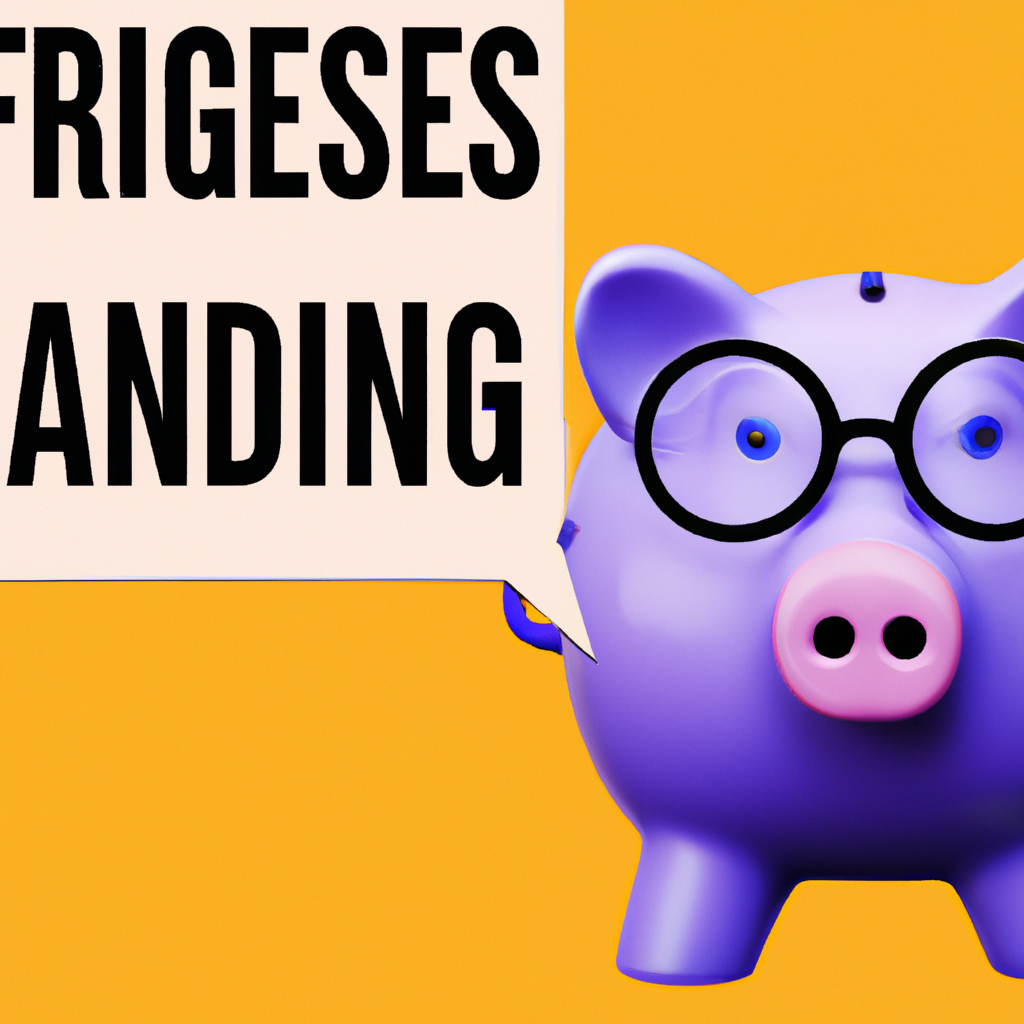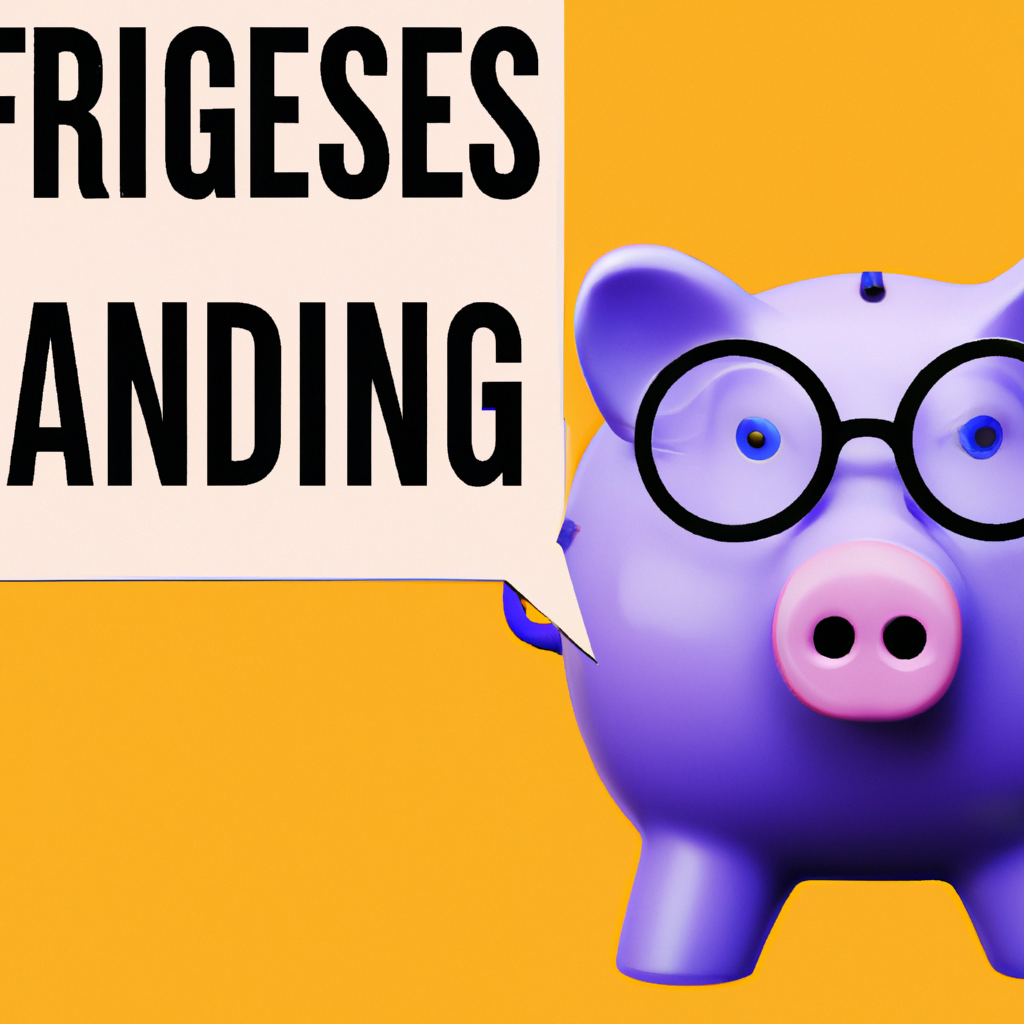Are you a freelancer looking to navigate the world of saving and budgeting on a variable income? Managing your finances can be quite a challenge when you don’t have a fixed monthly salary. However, fret not! In this article, we will share with you some valuable tips and strategies to help you save and budget effectively, even with an unpredictable income. So, grab a cup of coffee and get ready to take control of your financial future!

Introduction
Welcome to a comprehensive guide on saving and budgeting for freelancers with variable income. As a freelancer, you have the freedom and flexibility that comes with being your own boss, but it also means you have to navigate the challenges of managing irregular and unpredictable income. In this article, we will explore the importance of saving and budgeting for freelancers, provide strategies for creating and sticking to a budget, and offer tips for managing your finances effectively in the face of variable income. So let’s dive in!
Understanding Variable Income
Definition of variable income
Variable income refers to income that fluctuates from month to month or does not follow a consistent pattern. As a freelancer, your income can vary based on factors such as the number of clients, project duration, and market demand. Unlike employees who receive a steady paycheck, freelancers often experience income uncertainty and must learn to adapt to this unique financial situation.
Challenges of managing a variable income
Managing a variable income can pose several challenges. Firstly, the financial instability can be stressful and make it difficult to plan for the future. Secondly, irregular income makes budgeting more complex as you need to account for fluctuating cash flow. Lastly, as a freelancer, you do not have access to employer benefits such as health insurance or retirement plans, which places a greater responsibility on you to save for the future.
Importance of Saving and Budgeting for Freelancers
Financial instability
One of the most significant reasons why saving and budgeting are crucial for freelancers is the inherent financial instability that comes with a variable income. Without a steady paycheck, it becomes vital to set aside money for the lean months or unforeseen expenses. A solid savings account will provide you with a safety net and peace of mind during periods of income volatility.
Irregular income
Budgeting becomes even more critical for freelancers due to the irregularity of their income. Without a reliable monthly salary, it becomes challenging to plan and manage expenses effectively. By budgeting carefully and tracking income and expenses diligently, you can gain better control over your finances and ensure that you can cover both your necessities and discretionary expenses.
No employer benefits
Unlike traditional employees, freelancers do not have the luxury of employer benefits, such as health insurance or paid time off. It is essential to save and budget to compensate for these expenses, as well as to plan for future needs like retirement. By adopting disciplined saving habits and creating a budget, you can safeguard against unexpected costs and prioritize long-term financial goals.
Creating a Budget
Track income and expenses
The first step in creating a budget as a freelancer is to track your income and expenses meticulously. Keep a record of every payment you receive, including the source and date. Additionally, categorize all your expenses to gain insight into your spending habits. Various tools and apps are available to help you automate this process and provide a clear picture of your financial situation.
Identify fixed expenses
Separate your regular, fixed expenses from your variable or discretionary expenses. Fixed expenses include rent or mortgage, utilities, insurance premiums, and debt repayments. These payments are vital and must be accounted for in your budget to ensure they are prioritized and met on time.
Determine discretionary expenses
Discretionary expenses are non-essential costs that can be adjusted based on your income and cash flow. This category may include dining out, entertainment, and luxury purchases. Analyze these expenses carefully and consider which ones you can reduce or eliminate during periods of lower income.
Set financial goals
With a variable income, it is crucial to set realistic financial goals that take your income fluctuations into account. Start by identifying short-term goals, such as creating an emergency fund or paying off debt. Next, establish long-term goals like saving for a house or retirement. By having clear goals in mind, you can prioritize your spending and savings accordingly.
Saving Strategies
Create an emergency fund
An emergency fund is a crucial component of financial stability for freelancers. Aim to save at least three to six months’ worth of living expenses in an easily accessible account. This fund will provide a cushion during times of income scarcity or unexpected expenses, allowing you to avoid dipping into credit or falling into debt.
Save a percentage of each payment
A great strategy for saving on a variable income is to allocate a certain percentage of each payment you receive towards savings. Determine a percentage that is both realistic and sustainable for your financial situation. Automating this process by setting up automatic transfers from your checking account to your savings account can make saving effortless and prevent the temptation to spend the money elsewhere.
Automate your savings
In addition to saving a percentage of each payment, consider automating your savings. Set up recurring transfers to your savings account on a specified schedule, such as monthly or bi-weekly. By making saving a priority and treating it as a fixed expense, you can build up your savings consistently over time, even during months with lower income.
Reducing Expenses
Cut discretionary spending
When your income is variable, one effective way to manage your finances is to cut back on discretionary spending. Analyze your discretionary expenses and identify areas where you can make adjustments. Consider reducing dining out, entertainment, and subscription services. Opt for more affordable alternatives or explore free activities that align with your interests.
Negotiate bills
To further reduce expenses, don’t hesitate to negotiate bills with service providers. Many providers are open to offering discounts or lower rates if you are a loyal customer or can demonstrate financial need. Contact your internet, cable, insurance providers, and other utilities to explore potential cost savings.
Choose affordable alternatives
In addition to cutting discretionary spending, seek out affordable alternatives for essential expenses. Compare prices for insurance policies, phone plans, and even office supplies. Prioritize quality and value for money, but also keep your budget in mind. By being resourceful and exploring different options, you can save significantly over time.
Managing Irregular Income
Smooth out cash flow
One of the challenges freelancers face with variable income is the inconsistent cash flow. To manage this, it can be helpful to smooth out your cash flow by setting aside a portion of your income during peak earning months. This will enable you to have more financial stability during slower periods and ensure that your basic needs are met.
Set up separate accounts
Consider setting up separate accounts for different purposes to manage your irregular income effectively. Have a dedicated business account to receive freelance payments and manage business expenses. Set up a separate personal account where you transfer a predetermined salary from your business account to cover your living expenses and manage your budget.
Use payment tracking tools
Take advantage of payment tracking tools or spreadsheets to monitor your income and expenses closely. These tools can help you visualize cash flow patterns, identify trends, and make informed financial decisions. By staying organized and having a clear overview of your finances, you can adapt your budget and savings strategies accordingly.
Dealing with Seasonality
Plan for high and low seasons
Many freelancers experience seasonal fluctuations in their income. It is crucial to plan and prepare for both high and low seasons. During high seasons, prioritize saving and building your emergency fund for the lean times. Conversely, during low seasons, reduce expenses and be extra cautious with your spending to stretch your savings as well as possible.
Diversify income streams
To mitigate the impact of seasonality, consider diversifying your income streams. Explore different freelance opportunities within your skillset or industry to have multiple sources of income. This not only provides more financial stability but also broadens your professional experience and opens doors to new opportunities.
Reduce expenses during low seasons
When facing low seasons, be proactive in reducing your expenses. Analyze your budget and identify areas where you can make cuts or adjustments temporarily. This may include pausing subscriptions, reducing discretionary spending to a minimum, or even negotiating lower rates with service providers. By tightening your financial belt during lean periods, you can maintain financial resilience and weather the storm.
Handling Taxes
Set aside money for taxes
As a freelancer, it is essential to set aside money for taxes throughout the year. Unlike traditional employees whose taxes are automatically deducted from their paychecks, freelancers are responsible for making estimated tax payments. To avoid getting caught off guard by a large tax bill, allocate a portion of your income to a separate tax savings account or savings envelope.
Understand tax deductions
Take the time to understand the tax deductions available to freelancers and ensure you maximize them. Common deductions include business expenses, home office deductions, and self-employment tax deductions. By keeping meticulous records of your expenses and seeking professional advice if needed, you can minimize your tax liability and keep more money in your pocket.
Consult a tax professional
Given the complexities of self-employment taxes and deductions, it is wise to consult a tax professional or accountant. They can provide valuable guidance on how to navigate the tax landscape, ensure compliance with tax laws, and help you optimize your financial situation. Investing in professional advice can save you money in the long run and provide peace of mind.
Building Multiple Streams of Income
Explore different freelance opportunities
To enhance your financial stability and ensure a steady income, consider exploring different freelance opportunities within your skillset. Look for complementary services or industries where your expertise and experience can be applied. By diversifying your client base and tapping into different markets, you can reduce reliance on a single income source and increase your earning potential.
Create passive income streams
Aim to create passive income streams that generate income even when you are not actively working. This can include writing an e-book, developing an online course, or investing in rental properties. Passive income is an excellent way to balance the variability of your freelance income and provide additional financial security.
Invest in additional skills and education
Constantly investing in additional skills and education can open up new avenues for earning income. Stay updated with industry trends and consider pursuing certifications or training programs relevant to your field. By expanding your skillset, you can increase your marketability, command higher rates, and broaden your potential client base.
Conclusion
As a freelancer with variable income, saving and budgeting are essential for your financial well-being and long-term stability. By understanding the challenges of managing irregular income, creating a budget tailored to your financial situation, and adopting saving strategies, you can gain better control over your finances. Additionally, by effectively managing your cash flow, preparing for seasonal fluctuations, handling taxes diligently, and exploring multiple income streams, you can increase financial resilience and create a more secure future. Remember, with discipline, planning, and the right mindset, you can successfully navigate the unique financial landscape of freelancing. Happy saving and budgeting!

